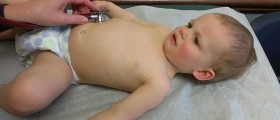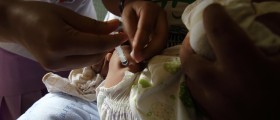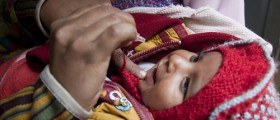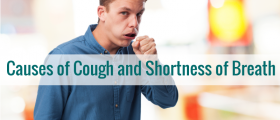
Pertussis or whooping cough caused by Bordetella pertussis (a bacterium) is a great health problem although a vaccine against this disease exists. This is especially a problem in infants and children.
In adolescents and adults, pertussis infection causes chronic cough that lasts for couple of weeks or months while in infants it may lead to serious complications such as hypoxia, apnea, pneumonia, seizures, encephalopathy and malnutrition. Also, pertussis may have fatal outcome. In fact, 5 to 10 cases of the disease in infants result in death each year.
Symptoms of Pertussis
Pertussis starts as a mild upper respiratory infection with early symptoms similar to common cold. The symptoms begin about a week after exposure to the bacteria. Initial symptoms of whooping cough include low grade fever, runny nose, sneezing and not severe cough. During this first stage of the infection, known as the catarrhal stage (which lasts between one to two weeks) the affected person is most contagious.
The second stage of pertussis, called the paroxysmal stage, lasts two to four weeks. At this stage the cough becomes more severe and is accompanied by a whoop and vomiting. Bursts of coughing occur due to difficulty expelling mucus. The whooping sound occurs at the end of the bursts of cough since the sufferer has difficulty breathing in.
In the third stage, known as the convalescent stage, the coughing gradually improves and becomes less frequent. This stage lasts about two weeks during which the patient slowly recovers until the cough disappears. Treatment for Pertussis
It is possible to recover from pertussis infection without antibiotics. However, use of antibiotics during the first stage of the disease can speed up the recovery and reduce the risk of transmission.
Commonly used antibiotic is erythromycin and it is administered for 14 days. Other antibiotics effective in treatment of whooping cough are clarythromycin (Biaxin), azithromycin (zithromax) and Bactrim.
Prevention of Pertussis
Pertussis in children can be prevented with the DTaP vaccine. This vaccine can be given to infants too. However, children are not completely protected against pertussis until they receive at least three doses of DTaP. Downside of pertussis vaccine is that it provides full immunity for only about 3 years, which then gradually decreases and finally disappears after 5 to 10 years.
Apart from immunization against pertussis with the DTaP vaccine, the disease can be prevented by keeping children away from the infected individuals. Young children should not be exposed to respiratory secretions of people with pertussis as it is the common way by which the pertussis bacteria can be contracted. However, if a child gets in contact with a person with the disease, antibiotics like erythromycin or clarithromycin can be used to prevent development of the infection.

















Your thoughts on this
Loading...